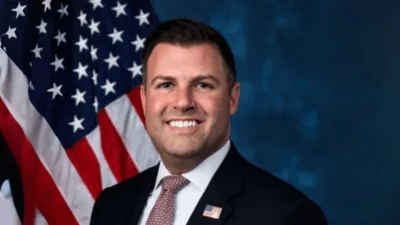As the U.S. Department of Labor prepares for contingency in case of a shutdown, a continuing resolution (CR) from Sen. Ron Johnson (R-Wisc.) to keep government funded into February could hit the Senate floor as early as Wednesday.
Any Senate action follows the vote Wednesday, Dec. 14, when the House voted 224 to 201 to approve a one-week stopgap bill to keep government funded to the end of this week. That vote included nine Republican House members.
The bill now is in the U.S. Senate with a deadline of Friday, Dec. 16, when the government runs out of funding to continue running. Without a CR, government employee furloughs could begin, including at DOL.

U.S. Sen. Rick Scott (R-Florida)
| Rick Scott Sen Office/Facebook
Johnson is not a willing fan of a CR, saying in February that operating under continual threats of government shutdown "is the height of dysfunction we see every day in Washington," but this month he signaled a CR is the lesser evil. After all, a Republican-majority House is coming.
"As much as I hate the dysfunction a Continuing Resolution represents, a massive Omnibus would be worse," Johnson said in a Twitter post Friday, Dec. 9. "Let's pass a CR that will allow a Republican House to pass a more fiscally responsible spending bill early next year."
Now that the House stopgap funding bill is in the Senate, Johnson is still keeping his cards close to his vest, saying Wednesday, "We're not saying we're going to do," when he was asked whether he'd allow the CR to proceed. However, his support for a "clean continuing resolution" to fund the government until Feb. 4, after Republicans take over the House, has support, including from Sen. Rick Scott (R-Fla.).
"The answer is now," Scott said on the Senate floor Tuesday, Dec. 13. "We say, 'enough is enough,' today. And we start by saying, 'no' to a massive omnibus spending bill and approving the simple Continuing Resolution being offered by my good friend, Senator Johnson of Wisconsin. Doing this allows the new Congress to put together a real budget that’s balanced. Which is what we should always be doing anyway."
Scott also indicated that the clean CR also has the support of Sens. Mike Lee (R-Utah), Ted Cruz (R-Texas) and Mike Braun (R-Ind.).
Scott also this week slammed the omnibus spending supported by Democrats and called on the GOP to stand against it.
"Republicans must demand fiscal responsibility & stand STRONG in opposition to another Pelosi-Schumer spending bill, which will only drive up inflation, raise taxes & greenlight progressive policies," Scott said in a Facebook post Wednesday, Dec. 14. "Anything less would be a complete dereliction of duty."
It isn't only Republicans who seem to favor a CR. Senate Majority Leader Chuck Schumer (D-N.Y.) said Monday, Dec. 12, that the Senate is working on passage of a continuing resolution. Many news outlets, including Reuters, have reported the CR Schumer favors would keep the federal government operating only an additional week to make time for a bipartisan agreement on an omnibus spending bill for all of fiscal year 2023.
"Over the weekend, appropriators held positive and productive conversations," Schumer said Monday. "Later this week members should be prepared to take quick action on a CR, a one-week CR, so we can give appropriators more time to finish a full-funding bill before the holidays."
That omnibus bill was supposed to have passed by the fiscal year's beginning in October. As it stands, government funding ends Friday, Dec. 16. Without a resolution, federal workers could be furloughed. That brings back memories of the shutdown four years ago that lasted more than a month, furloughed many government workers and almost closed major airports.
Friday's deadline was set by the CR passed in late September, news outlets, including CWLA, reported. That stopgap funding bill was passed by the Senate 72 to 25, after more than 200 Republican members of the House voted against it. Republicans against the CR in September objected to inadequate funding for border security and no solution for inflation and supply chain issues. Some Republicans also said they supported delaying a larger spending bill until January, after the GOP takes narrow control of the House.
Meanwhile, federal agencies maintain contingency plans against a lapse in appropriations, such as a government shutdown, according to a White House report issued about a year ago. Those follow the Antideficiency Act and outlines what federal actions may cease and which "excepted" actions may continue.
For example, DOL's contingency plan, last updated about a year ago, states the department would take about half of a day to cease all non-excepted activities in the event of a lapse in appropriations, which would include a government shutdown. When the plan was last updated, DOL had 14,142 agency employees. If the contingency plan is implemented, the agency would retain 10 employees "Presidential appointee[s] not subject to furlough," 2,088 whose "compensation is financed by a resource other than annual appropriations," 1,482 "necessary to perform activities necessarily implied by law" and 1,022 "necessary to protect life and property."
Multiple DOL agencies would cease all activities should the plan is implemented. Those agencies would include the Bureau of Labor Statistics, Veterans Employment and Training Service, Office of Federal Contract Compliance Programs, Women's Bureau, Administrative Review Board and the Benefits Review Board.









